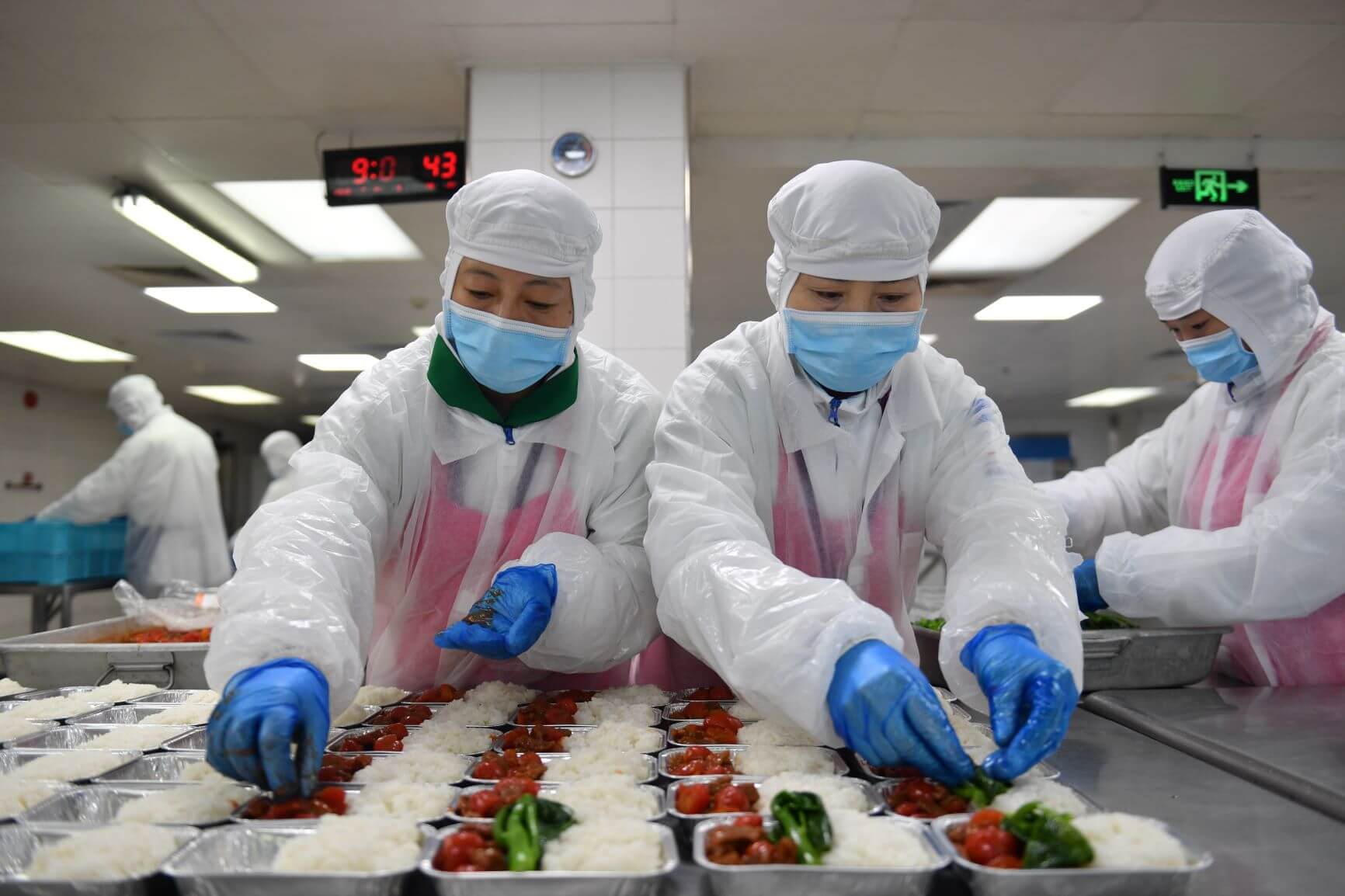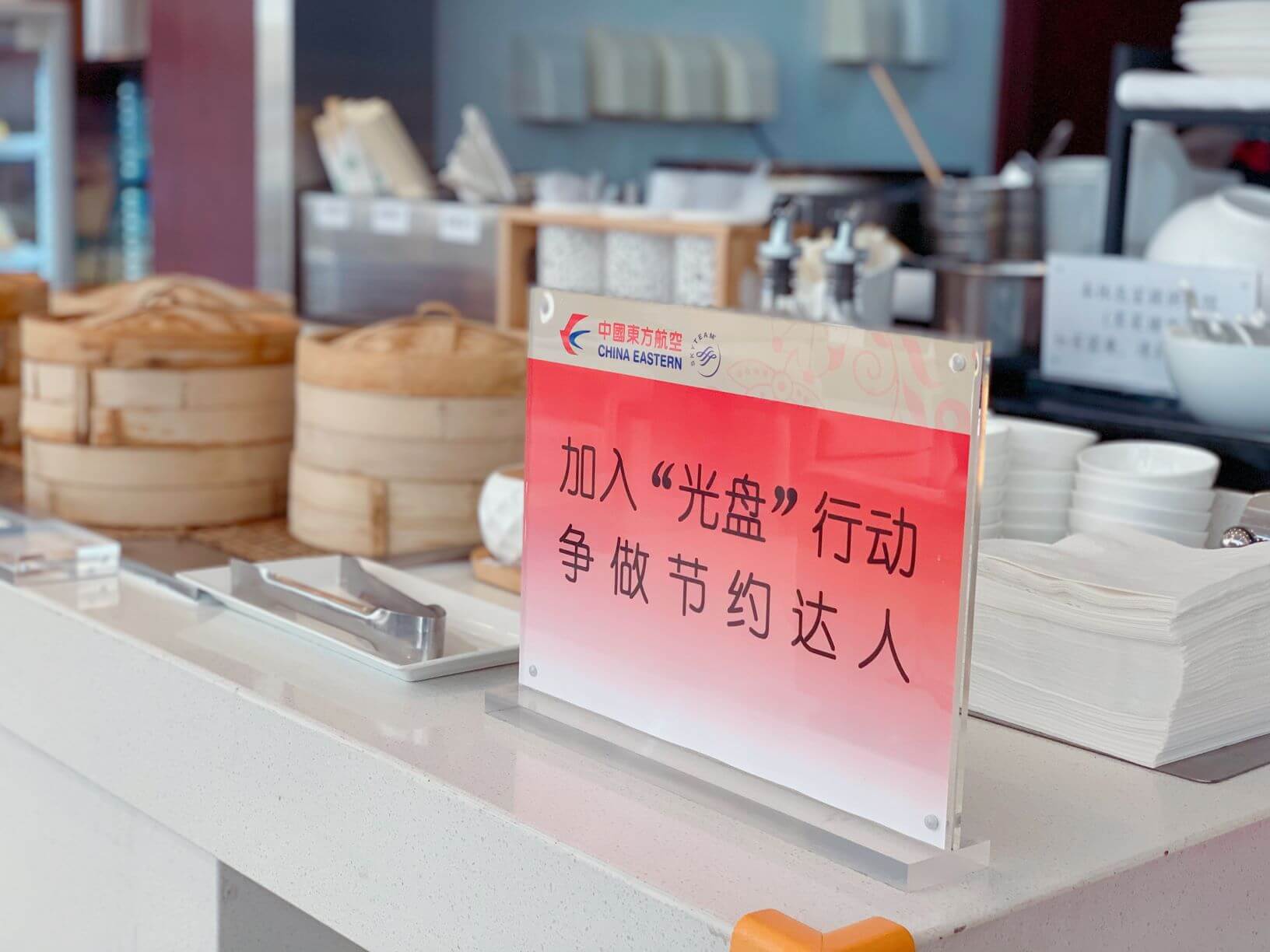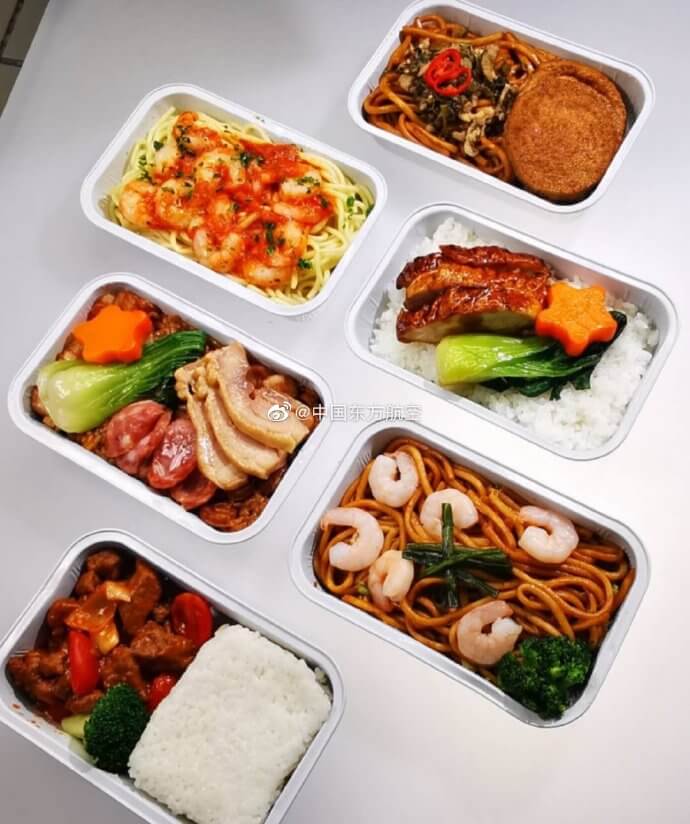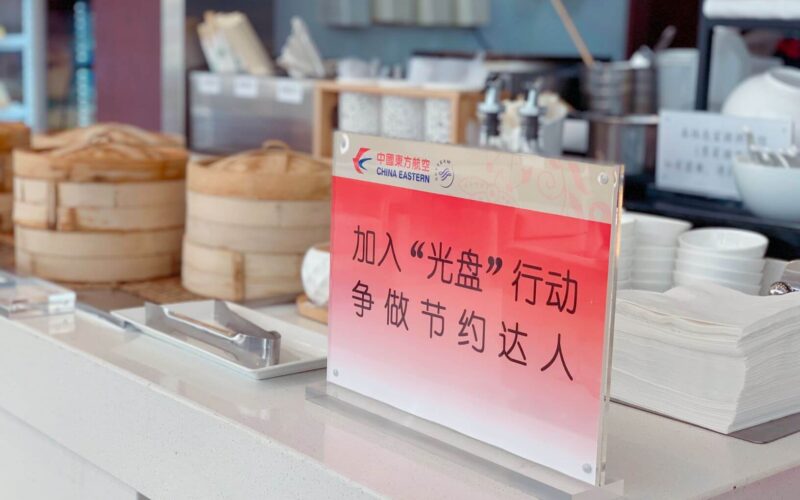China has recently launched the “Clean Plate” campaign against food waste, after President Xi highlighted that COVID-19 had raised the alarm on food waste.
In responding to the campaign, many Chinese airlines had come up with different activities to encourage passengers to save food and reduce waste.

Use big data analysis for management and control
Delicacy catering is an important means to save on-board food waste. With the help of big data analysis and other technical means, China Eastern Airlines (CIAH) (CEA) has established an effective delicacy catering scheme.
Different from the manual calculation a few years ago, the number and quantity of meals and ingredients required by the daily meals production of China Eastern Airlines (CIAH) (CEA) will be accurately estimated by the system relying on big data analysis tools – from the original extensive supply of “the amount you want”, to the fine management of supplying precisely “the amount you need”. According to statistics, compared with before the system was applied, only the food processing workshop in the Shanghai area of China Eastern Airlines (CIAH) (CEA) can save 100-150 kg of food ingredients every day.
Recently, eye-catching notice signs with the words “take your meal on-demand and refuse waste” are put in the VIP lounge of China Eastern Airlines (CIAH) (CEA) in several airports. The personnel servicing in the lounge will also give tips to encourage and advocate on food saving.

Trial Implementation of on-board “meals for miles” service
After the full resumption of the on-board food supply in mid-July, Hainan Airlines had launched the trial implementation of “meals for miles” service on some of its flight routes.
The passengers taking Hainan Airlines flight can apply for “meals for miles ” – to give up on-board meal service through the latest version of Hainan Airlines app, so as to obtain corresponding “points”. The number of redeemable points is related to the class and meal type of passengers. For example, passengers in business class can exchange their breakfast for 500 points. The points can be accumulated with frequent passengers’ points to exchange for free rewards including air tickets and cabin upgrade services.
Hainan Airlines officials said that by launching the in-flight meal exchange service, they aim to actively respond to the national ecological and environmental protection call, advocate green travel of passengers, and the same time meet the personalized needs of passengers.
Diversified food supply
While many passengers complain that one of the main reasons for the food waste on board is because of the monotony, airlines have also made great efforts in the variety of airplane meals to appeal to the passengers and avoid waste.


